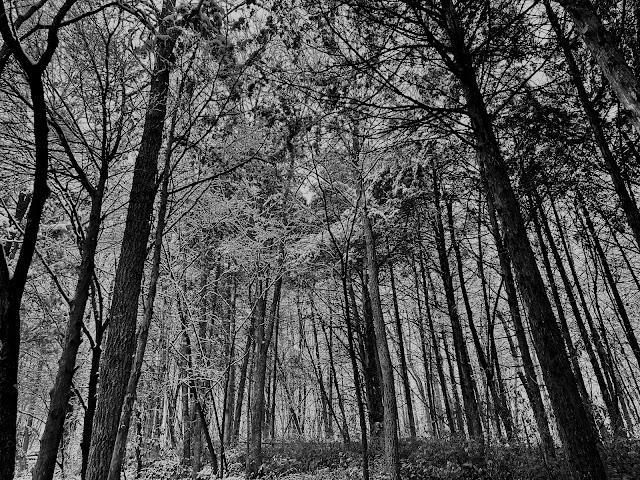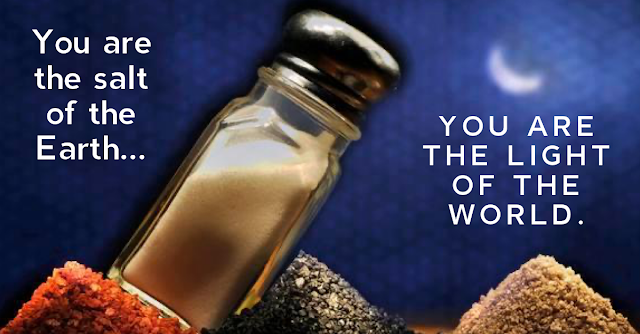But when I look deeper, there is a question that underlies the readings we heard today, and it is a question as old as time. From the birth of philosophy, one of the ultimate questions is “what does it mean to be human?” Regarding unique human characteristics that separate us from other animals, and from the rest of creation. What makes humans unique? It certainly isn’t strength, or speed, or agility—other creatures have us beat on all of those fronts. And the answers have been varied.
Reason, some proclaimed—and then we learned that dolphins, ants, and chimpanzees problem-solve and use tools. Language, others proclaimed—and then were learned about whale song and Koko the gorilla learning sign language. Memory, others suggested—and then we hear stories of elephants grieving their deceased kin, even years afterward, and loyal dogs returning to their family home after years of being lost thousands of miles away. Some claim that only humans have souls—but that takes us down another rabbit hole again, since you can’t prove the existence of a soul in ANYTHING.
Some people try to deny the humanity in others for their own benefit. In the 15th century, the Church debated whether indigenous people had souls, and were therefore human (they decided yes, but also decided that converting them justified treating them as disposable, so long as their souls were saved). At about the same time, slavery was brought to the Western hemisphere with a claim that those enslaved were less than human—about 3/5 of one. In the 20th century, Nazis famously denied the humanity of Jews, using a German term for them that translates to “beneath human.” Some people even today deny the humanity of immigrants, or of people merely suspected of crimes, much less of actual convicted criminals, and use that denial of these “othered” groups as fully human to justify denying them their rights to life, liberty, and property in one guise or another.
Rather than ever thinking we have the right to deny the humanity of others, we would do better to work on living into the humanity placed within ourselves. What does it mean to be a human? What experiences do our mammal bodies all share? We are born, we breathe, and almost immediately we get confused or scared at all the sensations short-circuiting our newly-minted minds. We cry out, we move clumsily, we seek nourishment and warmth and security. We seek companionship, love, and nurture. We listen for the familiar voices of our parents, for the people who teach us and guide us.
Along the way of growing up, which is a journey we all must take, we will encounter marvels and misadventures, times of play and times of trial. All of these experiences combine together to form us as young people. But it is the MEANING we make of our experiences—the narratives that we understand as running like a river through our lives and tying all that we have seen and learned and experienced together that makes us truly human. It is the stories we tell—the spark of imagination that ties us to being made in the image of the One who Created the Universe—that is one of the things that truly makes us human.
We hear two well-known stories in our readings today about the quest to understand what being human looks like. We hear two famous stories of the temptation. From the earliest collected scripture we hear of Adam and Eve being tempted in the Garden of Eden—and falling to that temptation. In our gospel passage, Jesus has just been baptized in the river Jordan. He was begun a new phase in his life. He is going to begin his ministry. And like all great religious leaders in scripture, he has to be centered in his heart, his mind, his body. Therefore he heads out into the wilderness, where he practices mastery over his mind and body with 40 days of fasting and tempting, seeking clarity, a vision to guide his ministry. Unlike Adam and Eve, Jesus will emerge triumphant over temptation.
Episcopal bishop and Choctaw elder the Rt. Rev. Steven Charleston describes Jesus’s experience in the wilderness as a traditional indigenous vision quest. The purpose of the vision quest was to receive a vision, and that vision was meant to be a blessing for one’s community. The quest would end with a vision that the seeker would bring back home for the help of his or her people. It would end with a narrative or insight that would provide guidance and benefit for all. In Indigenous wisdom, being human meant being willing to sacrifice for the well-being of those in your community, and to put wisdom and contemplation first in seeking a way through a challenge.
But being human is also being fallible. We can use our stories to tell truths about ourselves—or to justify wrongs we have done. Anyone who has ever raised a middle schooler has experienced that. Our readings this week seem to be pointing us toward consideration of one thing that humans definitely are really good at—and that is the subject of justifying ourselves when we serve our own interests at the expense of others.
We seem to always get off track, beloveds, when we overlook the fallibility part, and deny the responsibility part of being human in favor of the argument from exceptionalism that confers more rights on whoever we define as “us” versus whoever we define as “them.” When we define being human as something that makes us exceptional, that’s a dangerous endeavor, because it inevitably leads us to trying to justify selfishness and injustice. When we decide that we can depend more upon our own resources than trusting in God, that’s where we go wrong. Every time.
The story of Adam and Eve is at the beginning of scripture for a reason, after all. This story begins with the reminder that God had given Adam and Eve everything they needed for survival—and yet they were driven to try to take something that God said was not meant for them. I love the fact that the ancient people who first told the stories in the Torah start right out with admitting that when it comes to temptation, we humans have almost never met one we didn’t like. It’s like that great saying, “Opportunity may only knock once, but temptation leans on the doorbell.”
The temptation of Adam and Eve—and Jesus-- started out with a discussion of food, there through God’s providence—but it’s really about seeking power to free us from dependence upon God. It’s about being humble. Likewise, in the first two temptations Jesus faces after those 40 days in the wilderness, the devil tries to get Jesus to turn his back on God’s providence, and use his power for himself. The first two temptations try to play up to what in anyone else would be human vanity— “Hey! You’re God’s son! The rules don’t apply to you, and what can it hurt?” The first two try to lead Jesus from obedience to God by setting himself up over God. The third temptation drops all pretense and nakedly reveals the agenda: “Abandon God, worship me, and I will give you the world, since it’s mine.” He’s lying, of course. The world doesn’t belong to Satan—unless we hand him the keys. Ultimately, what Satan tries to tempt Jesus to do is to abandon his humanity—the point of his incarnation in the first place-- and exploit his power as the Son of God to rely upon himself over God.
And that, my friends, right there, might be the greatest temptation facing humanity in our time. We have convinced ourselves we do not need God—well, maybe to get ourselves out of hell, but after that God can just become a convenient proxy for our own worst impulses. We have convinced ourselves that we do not need to live by God’s word, or honor God’s creation upon which we depend, or limit indulging ourselves in any way, even if that hurts or endangers others or this planet. We have forgotten to be humble before God, and each other.
What we see here in looking at the parallels between our Genesis reading and the temptation of Jesus here is that the “original” sin has nothing to do with sex. It has to do with not trusting God to guide us in ways that maximize our own flourishing—being arrogant and humble enough to believe that we can do whatever we want, regardless of whom that might hurt. It’s about not trusting God’s urging for our lives to be ones of compassion, empathy, and humility in which we work for the common good. It has to do with putting the trust and faith that we should have in God in ourselves and our own judgment—even as we know that our judgment is often tainted by fear, anxiety, and feelings of scarcity.
One of the blessings of Lent is that it is a time to address our fears and free ourselves from them, by realizing that no matter what we are going through, God has gone through it. too, especially in the passion and execution of Jesus at the hands of the evil humans can create and justify when they believe themselves the ultimate authority on Earth. A time like right now.
But this time—this Lenten season especially—is a gift given to us, to confront our fears and overcome them. A theme for sermons during Lent this year could be “Fearless.” Jesus fearlessly faces his time in the wilderness because he has been led by the Spirit into the wilderness as God’s beloved Son, for the express purpose of being tested. Jesus is fearless and bold in the face of the devil’s temptation because he knows who he is, and he knows that God is with him. His ultimate trust in God means that he can’t be tested away from his faith or his obedience to the will of the Father. He is secure within the love of God. We are tempted to sin when we are afraid— afraid that we are alone in the world, despite all the promises of God that God is always with us.
If Jesus’s forty days in the wilderness is a time of self-creation, a time for Jesus to decide who he is and how he will live out his calling, then consider carefully what the Son of God chooses: deprivation over ease. Vulnerability over rescue. Obscurity over honor. At every instance in which he can reach for the certain, the extraordinary, and the miraculous, he reaches instead for the precarious, the quiet, and the mundane.
We often describe Lent as a journey, as a time of testing. May it be so: a time for us to purify ourselves and clarify our minds, to be reminded that we are called into community with each other for the blessing of the world. A time to humbly remember that what makes us human is NOT our independent streak, but our ability to trust in God and care for each other.
Amen.
Preached at the 505 on February 25 and at the 10:30 Holy Eucharist on February 26, 2023 at St. Martin's Episcopal Church, Ellisville.
Readings:
Citations:
Steven Charleston, The Four Vision Quests of Jesus, pp. 22-25.














